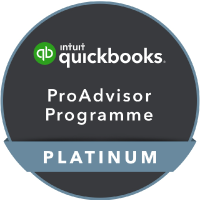In this week’s Enews, we look at the major changes made in Rachel Reeves’s first Budget. We also have Budget reaction from business groups and a National Living Wage increase to update you on.
News - 1 November 2024

Chancellor promises to drive growth and raises £40 billion in taxes
Chancellor Rachel Reeves pledged to ‘invest, invest, invest’ to drive growth and ‘restore economic stability’ in the Autumn Budget.
The Budget, which was Labour’s first in over 14 years and the first ever delivered by a female Chancellor, saw £40 billion in tax announcements.
Ms Reeves repeated her claims that the government had inherited a £22 billion ‘black hole’ in the public finances from the Conservatives.
Pre-Budget speculation had centred on the likelihood of increases to employers’ National Insurance contributions (NICs), Capital Gains Tax (CGT) and Inheritance Tax (IHT).
The Chancellor announced an increase to the rate of employer NICs by 1.2 percentage points to 15% from 6 April 2025. However, the Secondary Threshold – the level at which employers become liable to pay NICs on each employee’s salary – will reduce from £9,100 per year to £5,000 per year.
CGT on non-residential assets will increase from 10% to 18% for those paying the lower rate, and 20% to 24% for those paying the higher rate for disposals from 30 October 2024. These new rates will match the residential property rates. The CGT rates applicable to assets qualifying for Business Asset Disposal Relief (BADR) and Investors’ Relief will remain at 10% this year, before rising to 14% from April 2025 and 18% from April 2026.
The IHT nil rate band remains unchanged at £325,000 although from April 2027 inherited pension pots will be brought into the IHT net. The government says this will remove a distortion which has led to pensions being used as a tax planning vehicle to transfer wealth rather than their original purpose to fund retirement.
From April 2026, agricultural property relief and business property relief will be reformed. The highest rate of relief will continue at 100% for the first £1 million of combined business and agricultural assets on top of the existing nil rate bands, fully protecting the majority of businesses and farms. The rate of relief will reduce to 50% after the first £1 million.
The Chancellor also confirmed that VAT will be in on private school fees and abolishment of the non-dom tax regime.
Ms Reeves said she would protect living standards by unfreezing the thresholds on Income Tax and NICs from 2028 while she extended the cut in Fuel Duty for another year.
Reeves said:
‘The choices I have made today are the right choices to restore stability to our public finances, to protect working people, to fix our NHS and to rebuild Britain.
‘That does not mean that these choices are easy, but they are responsible.’
Internet link: GOV.UK
Autumn Budget – the business reaction
Business groups have reacted to Chancellor Rachel Reeves’ Autumn Budget speech.
The Confederation of British Industry (CBI) said that the Chancellor ‘had difficult choices to make to deliver stability for the economy’.
Rain Newton-Smith, Chief Executive of the CBI, commented:
‘A more balanced approach to our fiscal rules which prioritises capital investment should help to unlock private sector investment in our infrastructure and net zero transition over the long-term.
‘While the Corporation Tax Roadmap will help create much needed stability, the hike in National Insurance contributions (NICs) alongside other increases to the employer cost base will increase the burden on business and hit the ability to invest and ultimately make it more expensive to hire people or give pay rises.’
Meanwhile, Shevaun Haviland, Director General of the British Chambers of Commerce (BCC), labelled the fiscal event a ‘tough Budget for business’. She continued:
‘While some protection for smaller firms is welcome, the increase in employer NICs will place a further cost burden on business. This, coupled with a 6.7% increase in the National Living Wage (NLW) means many firms will find it more challenging to invest and recruit in the short-term.
‘But the Chancellor has looked to offset the upfront hit on firms by outlining a longer-term framework to provide stability for the economy.’
The Institute of Directors (IoD) branded the Autumn Budget as offering ‘short-term pain for the business community’.
Roger Barker, Director of Policy at the IoD, said:
‘The government has chosen to impose a significant new tax burden on business as a means of achieving an immediate boost to its public sector spending priorities. The risk is that this will exert a negative impact on business confidence, with worrying implications for the economy’s future growth trajectory.’
Internet links: CBI website | BCC website | IoD website
National Living Wage rises by 6.7%
Over three million workers will receive a pay boost after Chancellor Rachel Reeves confirmed the National Living Wage will increase from £11.44 to £12.21 an hour from April 2025.
The 6.7% increase is worth £1,400 a year for an eligible full-time worker. The National Minimum Wage for 18 to 20-year-olds will also rise from £8.60 to £10.00 an hour. This £1.40 increase will mean full-time younger workers eligible for the rate will see their pay boosted by £2,500 next year.
The government says this is the first step towards aligning the National Minimum Wage and National Living Wage to create a single adult wage rate.
The minimum hourly wage for an apprentice is also boosted next year, with an 18-year-old apprentice in an industry like construction seeing their minimum hourly pay increase by 18%, a pay rise from £6.40 to £7.55 an hour.
Ms Reeves said:
‘This government promised a genuine living wage for working people. This pay boost for millions of workers is a significant step towards delivering on that promise.’
Internet link: HMRC press release





